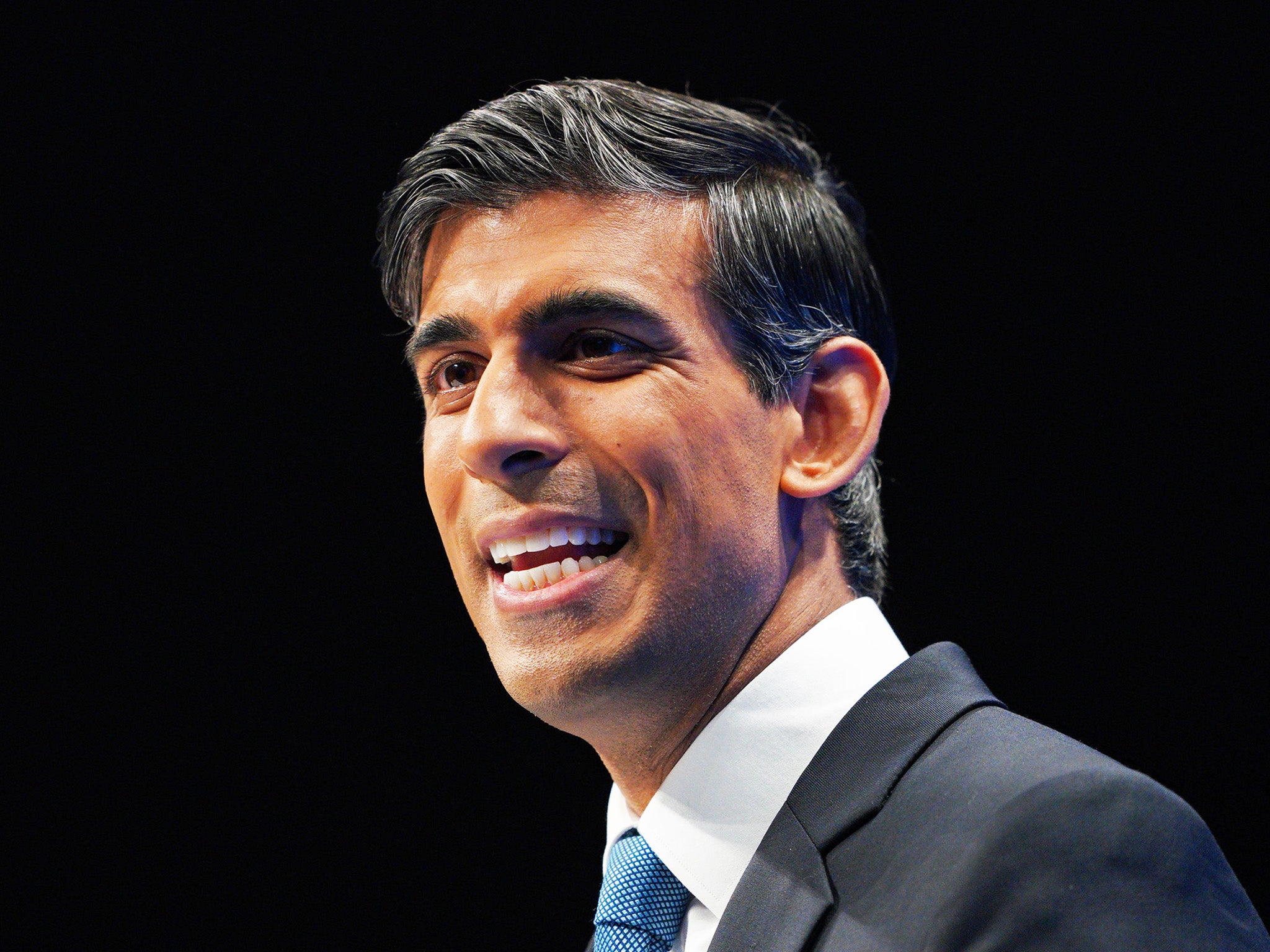Rishi Sunak under fire for ‘planning to recycle billions from IMF as aid money’
Move would be another knock for ‘Global Britain’, say critics

Your support helps us to tell the story
From reproductive rights to climate change to Big Tech, The Independent is on the ground when the story is developing. Whether it's investigating the financials of Elon Musk's pro-Trump PAC or producing our latest documentary, 'The A Word', which shines a light on the American women fighting for reproductive rights, we know how important it is to parse out the facts from the messaging.
At such a critical moment in US history, we need reporters on the ground. Your donation allows us to keep sending journalists to speak to both sides of the story.
The Independent is trusted by Americans across the entire political spectrum. And unlike many other quality news outlets, we choose not to lock Americans out of our reporting and analysis with paywalls. We believe quality journalism should be available to everyone, paid for by those who can afford it.
Your support makes all the difference.Rishi Sunak has been criticised for looking to save of billions of pounds by “recycling” money from an International Monetary Fund (IMF) windfall as aid spending.
Campaigners believe the chancellor is preparing to use a large portion of the windfall in the overseas aid budget rather than on top of it.
The government decided to cut aid spending from 0.7 per cent to 0.5 per cent of national income this year, a move that was widely condemned and met with a rebellion of Conservative MPs.
Britain has received £19bn in a payout from the IMF's special drawing rights (SDRs) to help poor countries ailing from the coronavirus pandemic.
Other countries are spending their allocation from the fund in addition to existing budgets, but The Guardian reported that Mr Sunak will stick to an internationally agreed rule that allows 30 per cent of IMF lending to count as aid.
Romilly Greenhill, the UK director of the One Campaign against poverty, said she expects the government to recycle around 75 per cent of its SDR payout, saving up to £5bn in the coming years.
She called on the Mr Sunak to use his spending review on 27 October to change course, adding: “It's even more outrageous that we are the only rich donor to be considering counting this money as aid.
“Because of the way SDRs work this money comes at barely any cost to the UK taxpayer. It's literally taking charity away from those most in need.”
Two former Conservative international development secretaries have urged the chancellor to reconsider.
Andrew Mitchell, who also led the Tory rebellion against the aid cut, said the move would have a “devastating effect on humanitarian causes British people care about and send a terrible message about global Britain”.
Justine Greening, in the role from 2012 to 2016, said: “Britain has already reduced its aid spend from 0.7 per cent to 0.5 per cent of gross national income. If we are to be a truly global Britain then we should now be focused on having the maximum impact with what remains.”
“It would be counter-productive to effectively even further reduce the aid investment that saves lives and keeps fragile states stable.”
The Liberal Democrats' foreign affairs spokesperson Layla Moran accused the government of sending “completely the wrong message” ahead of the Cop26 climate summit in Glasgow.
“This Conservative government has dealt yet another damaging blow to Britain's global reputation, by recycling aid money to avoid helping the world's poorest people,” she said.
The Treasury did not deny the plans, and a government spokesperson, said: “The UK is one of the leading international aid donors and this year we provided over £10bn towards poverty reduction, climate change, and global health security. We will return to the 0.7 per cent target when the fiscal situation allows.”
Join our commenting forum
Join thought-provoking conversations, follow other Independent readers and see their replies
Comments